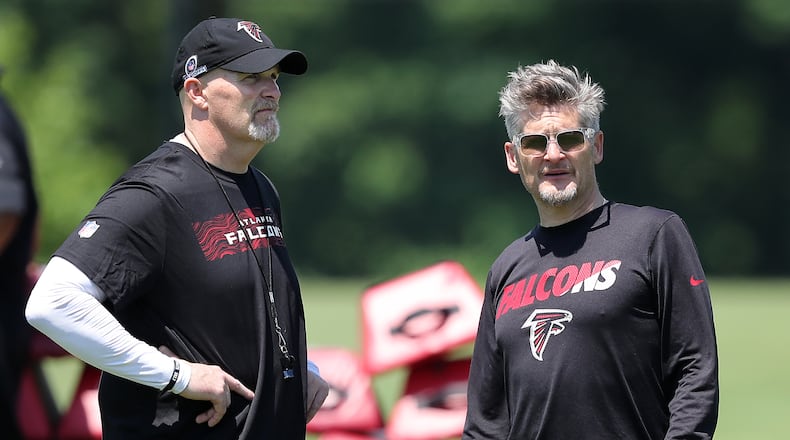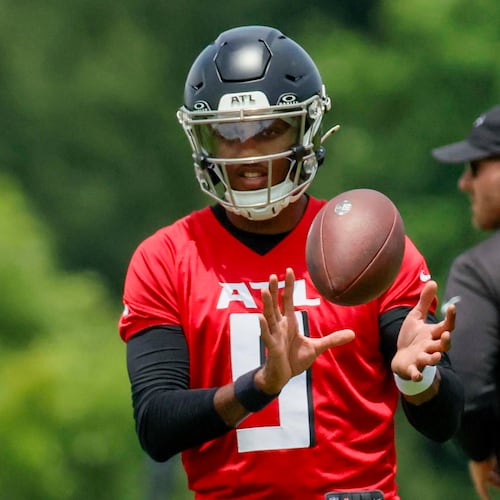As teams prepare for an NFL season coexisting with the COVID-19 pandemic, worst-case scenarios must be thought out accordingly.
Take this potential situation, for example: Late during a game week, multiple players who tested negative Monday through Thursday suddenly test positive Friday for the novel coronavirus. Those players are then immediately ineligible to compete in that week’s coming game and are moved to the reserve/COVID-19 list. And if it was determined that those COVID-19 positive players were in close contact with other players -- deemed to be within six feet for longer than 15 minutes -- then those other players will be forced into quarantine as well.
In this scenario, and on short notice, numerous holes would suddenly need to be filled just two days before a game.
In this hypothetical, a team must be prepared to promote multiple replacements from the practice squad. While teams didn’t enter previous seasons thinking much about their practice-squad players seeing game action, this year could see such a thing occur more often than before.
While the Falcons will attempt to socially distance and wear masks as much as possible, there will be times during the physical parts of practice where this is unavoidable. However, there is a plan to help avoid constant close contact for long durations.
Each day at the team facility, players and coaches will wear devices around their arms to track their movements. While the devices will be used to contact trace after a positive test, they also will help notify players and coaches in the moment when they’ve been around another person for too long.
Therefore, even when the pads come on and the contact begins, players are unlikely to engage in close activity for 15 consecutive minutes. What is likely to happen is that after a set number of minutes, and before a 15-minute mark, players will be asked to disperse and distance for a minute or two before reconvening for the next drill or team situation.
“I think the trackers help also to know where we’re at,” coach Dan Quinn said. “That helps keep six feet of distance. There’s a light that would go on if we’re too close or too connected to someone for more than 15 continuous minutes.”
Whether by design or coincidence, ensuring depth in case of an outbreak has been taking place in the secondary. As of now, the Falcons have 17 defensive backs on the 80-man roster, with safety Jamal Carter still on the reserve/COVID-19 list. In addition, the team will re-sign safety J.J. Wilcox if he is able to clear the COVID-19 protocol in the coming days.
On this year’s practice squad, six of the 16 players can have an unlimited number of accrued seasons. And each game week, teams will designate four players on the practice squad that other clubs will be unable to poach. Teams also will have the ability to bring up two practice-squad players to the active roster during a game week without making a dedicated roster move.
In addition to the big numbers in the secondary, the Falcons could make some other strategic decisions in the event of a COVID-19 outbreak on the roster. Potential outcomes for the expanded practice squad could include two quarterbacks, two tight ends and an extra specialist who is able to handle both punting and place-kicking duties in an emergency situation.
Quinn said a player who can provide multiple roles as a backup will be more valuable than ever before.
“I think having depth all the way through is the big piece of that, to make sure you’re really covered from A to Z, from quarterbacks to specialists, to another tight end, to a swing tackle,” Quinn said. “Versatility, to me, is going to be a big piece of that. For a player who can do more than one thing ... I think this year those words are more true than most years.”
In addition, Quinn and general manager Thomas Dimitroff have discussed putting together an emergency list of street free agents after the regular-season roster is finalized. Even then, there will be plenty of issues to work through.
Since a player must test negative for COVID-19 three times over four days before gaining entrance to the team facility, adding a player midweek for that Sunday’s game will be next to impossible. Therefore, Quinn noted that while there will be signings midseason to replace players who suffer significant injuries, the short-term adds are the ones the team must get right when it comes to constructing the practice squad.
“That (testing) process is pretty long,” Quinn said. “I think you’re looking at two different scenarios. For a long-term solution, when someone is out for the year and you’re wanting to add, maybe that’s for a week ahead and moving forward. Compared to the short-term, you’d really like to fill that through the practice squad. I’m certainly hopeful that between inactive players and the practice squad, on those scenarios, that we’re able to fill from within.”
About the Author
Keep Reading
The Latest
Featured


